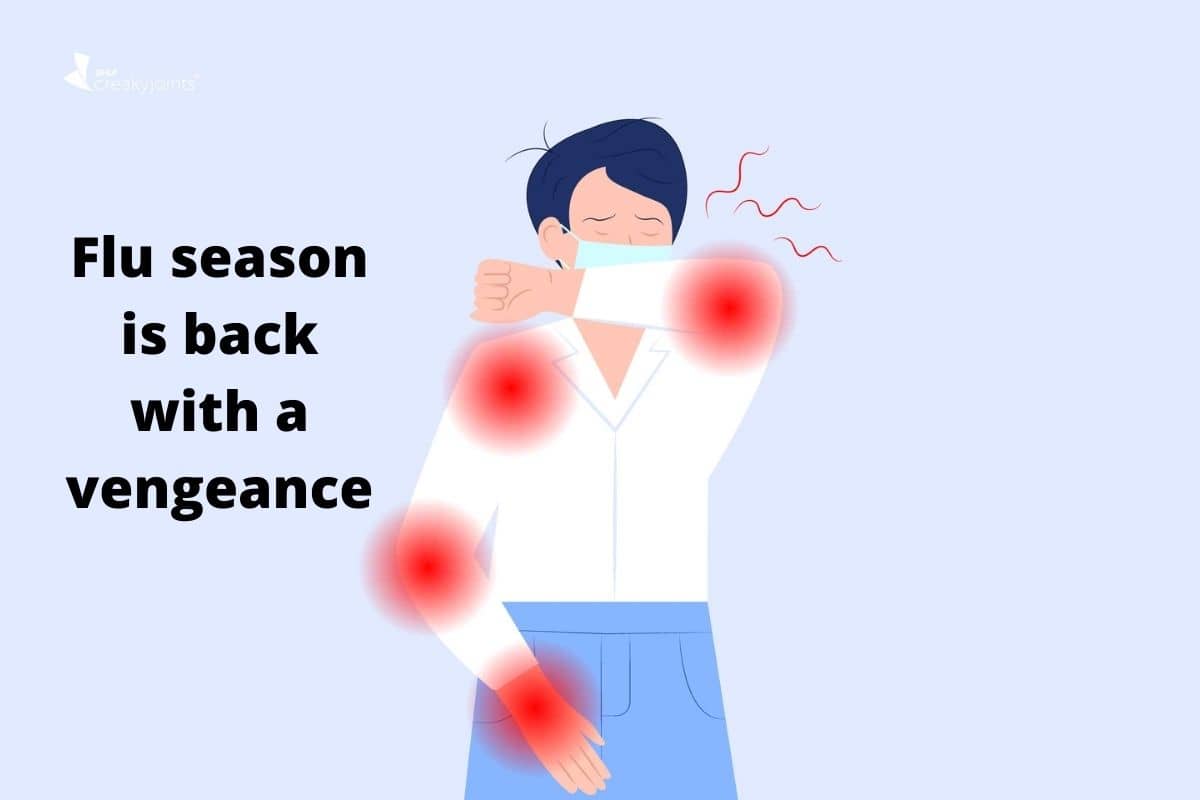A “particularly bad flu season” has struck Australia, according to health officials, and vaccination offers some protection against infection and serious illness.
It’s been two years since we’ve had a flu season, but it’s back in full force now. A higher percentage of people are suffering from severe flu symptoms this year than in previous years, according to VicHealth CEO Sandro Demaio.
“Flu season has been particularly bad this year. Flu-related hospitalizations are rising at an alarming rate “SBS News quoted Dr Demaio as saying.
More than 38,000 flu cases have been reported in Australia so far this year, according to the Department of Health. More than 26,000 cases were reported in two weeks between May 9 and 22.
Influenza A has accounted for nearly all laboratory-confirmed flu cases this season, making it the most common type of flu.
Why Is the Flu Season So Much Worse This Year?
The Australian Medical Association’s vice president, Chris Moy, said the flu this year was worse because it was the first time in three years that Australians had to deal with it.
“Because of the [COVID-19] lockdowns and restrictions that have been in place for the past two years, we’ve had almost no flu. There has been no immunity in the community as a result of the lack of exposure “SBS News spoke with Dr Moy.
What Are the Flu Symptoms?
Flu symptoms include a runny nose or sneezing, a cough or sore throat, fever and chills, headache, body aches, vomiting, and diarrhoea, according to the Department of Health (more common in children).
A week or more of flu-like symptoms is not uncommon after the first one or three days of infection. There is a wide range of reactions from mild to severe. For a few weeks, you may experience symptoms and feel ill, according to Dr Demaio.
Coughing, lethargy, and exhaustion, in particular, have been reported for two to three weeks following infection, according to him.
How Similar Are the Flu Symptoms to the Covid-19 Symptoms?
Dr Moy said it’s difficult to tell flu symptoms from COVID-19 symptoms.
COVID-19’s “defining characteristic” may be a loss of smell, which is distinct from a blocked or running nose, he said.
“As a result, it’s quite difficult to distinguish between the two Even with symptoms, I don’t think an average person can tell the difference between them.”
What’s the Best Way to Know What You’ve Got?
In Dr Demaio’s opinion, it’s important not to assume that a virus is either one or the other.
Call COVID-19 or make an appointment with your primary care physician, he advised.
As a doctor, I cannot stress how important it is to get your flu vax. Some hospitals are now seeing a 500% increase in cases, particularly among older and young ones. Please book with your GP or pharmacist when you can. Don’t delay.
— Dr Sandro Demaio (@SandroDemaio) May 23, 2022
Dr Demaio said that the health advice for limiting the spread of infection is the same whether you have the flu or COVID-19.
Sneeze with your mouth closed and wear a face mask at all times when you’re symptomatic. “Cover your mouth when you sneeze, make sure you’re wearing a mask at all times,” he advised.
Does a flu shot help?
Getting vaccinated is the best way to avoid getting the flu, according to the Department of Health.
Everyone six months of age and older should be vaccinated against influenza on an annual basis.
Aboriginal and Torres Strait Islander people, children ages six months to five years, pregnant women, people 65 and older, and those with medical conditions that increase their risk of serious illness are all eligible for free annual flu vaccines under the National Immunization Program.
Flu vaccinations are now free for everyone in Queensland, NSW, Victoria, South Australia, and Western Australia due to an increase in the number of flu cases in the country.
When should you get the flu shot?
As soon as possible, Dr Demaio advised, “Australians should get their flu vaccines.”
According to him, it takes two weeks for the medication to take effect.
Dr Demaio advised people who are more susceptible to flu complications to get their vaccine in mid-autumn every year, six weeks before the start of winter, to protect themselves.
Those people may also want to talk to their doctor about the possibility of getting a second flu shot later in the season, as the vaccine has “peak effectiveness” of three to four months, Dr Demaio said.
Even though a flu shot may not completely prevent you from contracting a highly contagious illness, Dr Moy believes that it can significantly reduce the likelihood of severe infection and symptoms.
Can You Get the Flu Twice in One Season?
Dr Demaio replied, “Yes, you can.”
As far as influenza is concerned, “there are a variety of strains and subtypes of the virus.”
According to Dr Demaio, you can get the same strain twice, but the second infection will be less severe because you’ve already built up immunity to it.
Should You Get the Shot Even if You’ve Had the Flu?
Dr Demaio replied, “Absolutely,” to the question.
A “very harsh flu season” has been reported this year because the virus is constantly evolving.
If you’ve had the flu, I still recommend getting vaccinated to keep you safe for the remainder of this season, even if you haven’t yet recovered.
As the doctor puts it, “You should not get vaccinated until all of your symptoms have subsided and you are feeling well.”
What About Children Younger Than Six Months?
Children under the age of six months should not receive the flu vaccine, according to Dr Demaio.
Having everyone else in the household vaccinated would be the best course of action for families in that situation, he said.
“Reduces the risk of infection and reduces the severity of symptoms if you do catch the virus. You are less likely to shed the virus and thus pass it on to children if you have milder symptoms, as we’ve established.”
Dr Demaio advises parents to seek medical attention as soon as their children show signs of the flu.
Call the COVID-19 hotline, NURSE-ON-CALL [healthdirect] or your GP if you have a child who has developed symptoms,” the CDC’s director of public health said.
Read More:-

















Comment on “Flu Season Is Back With a Vengeance. Here’s How to Protect Yourself Against Severe Illness& More Details!”